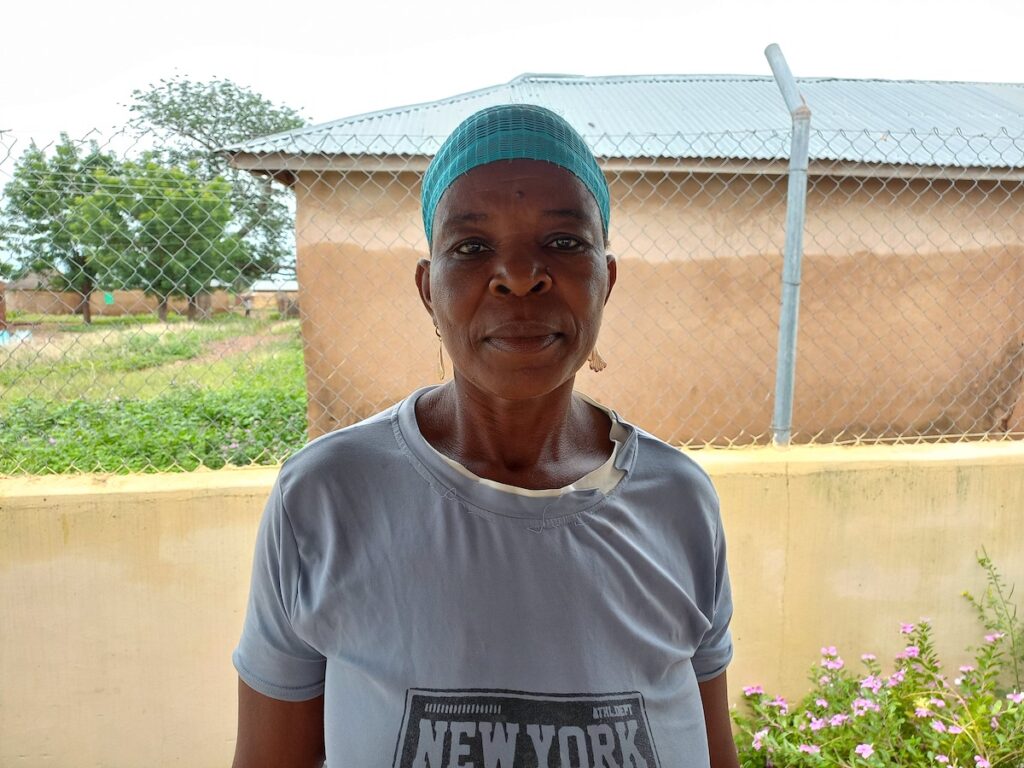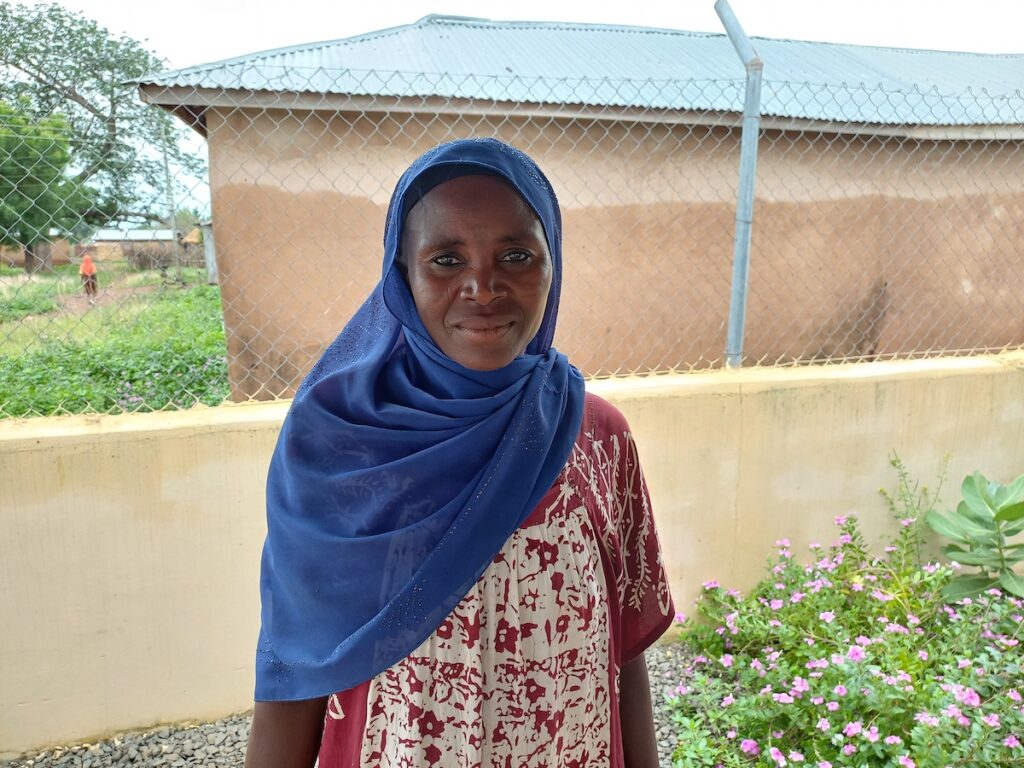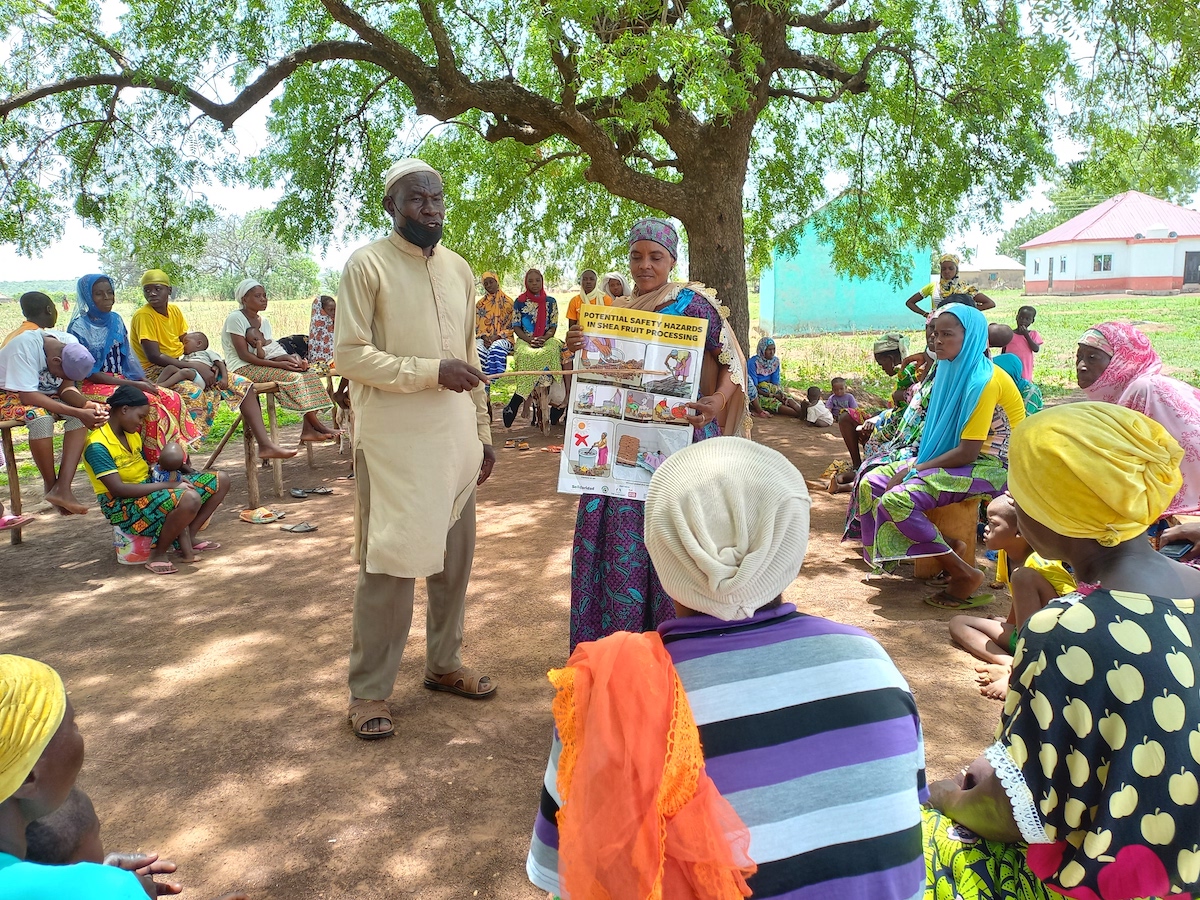The challenges in producing shea butter often put women at risk. Solidaridad, along with partners in the “Strengthening the Sustainability of the Shea Supply Chain in Northern Ghana” project, has embarked on a health and safety training that aims to improve health and safety for 1,600 shea fruit collectors across 10 project communities.
The programme utilizes a train-the-trainer approach. Solidaridad has provided health and safety training to 20 trainers, each of whom has been assigned a goal of training 80 women shea nut collectors.
The training informs the participants about the risks associated with shea fruit collection and processing, and provides solutions to mitigate them.
For example, many women who suffer snake bites and scorpion stings apply traditional treatments that often exacerbate the injury. The training encourages the participants to utilize Personal Protective Equipment (PPE) during shea fruit collection, and if they are bitten, women learn how to seek immediate medical care from a recognized health facility.
Women shea fruit collectors are also advised to travel in groups to mitigate the risk of robberies or sexual assault.
Shani Haruna, Programme Manager for the Shea project, indicated that the training is positively shaping how the shea fruit collectors approach their work. Trainers use flip illustrations and posters to aid retention of the lessons learned.
“The perilous nature of shea fruit collection demands that we sensitize the women collectors on the right safety precautions in ensuring that their quest to sustain their livelihoods is not at the expense of their health,” Shani said. “Ensuring decent working conditions for farmers and workers is essential to the interventions we offer.”

I have never quite prioritized going to the bush with another collector or friend. The motivation is mostly to go alone and identify a good collection point from which I can exclusively benefit. However, I now understand the value of going as a group and alleviating my anxiety of getting attacked and harmed. The added benefit of the group is that we can explore certain areas that I could not have ventured on my own and potentially find more collection points.

I have always associated PPEs with other laborious work where the use of power tools and loose objects can cause injuries, however, I consider the argument to wear PPE for shea fruit collection to be very sound. Wearing the Wellington boots and gloves will help minimize scorpion stings and snake bites and I am ready to adopt that practice.
The Strengthening the Sustainability of the Shea Supply Chain in Northern Ghana project seeks to improve the livelihoods of 10,000 women shea nut collectors by 2024. The three-year project engages and trains women nut collectors on business skills, collective marketing of shea, health and safety, climate-smart agriculture and income diversification, among other topics.The project is funded by the Fund for Responsible Business (FVO), as part of the Netherlands Enterprise Agency (RVO) and implemented in partnership with The Body Shop, Cargill Zor Tungteiya Women’s Association, Solidaridad, Global Shea Alliance, and the Lorna Young Foundation’s Farmers’ Voice Radio.

